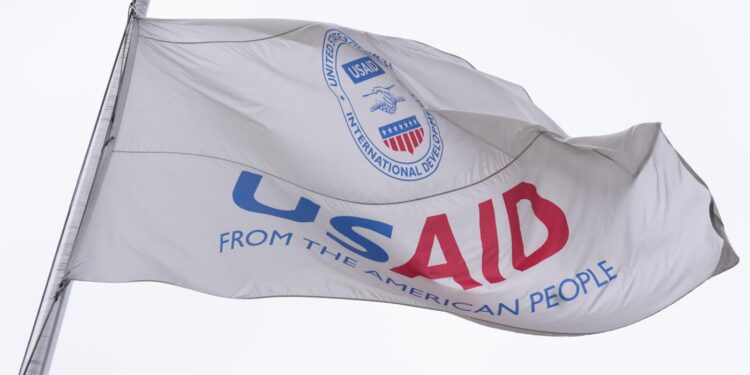
The Trump administration in recent weeks has moved to shut down the United States Agency for International Development (USAID), implementing a 90-day freeze on foreign aid, leading to significant operational disruptions. Trump has criticized the humanitarian organization for alleged wasteful spending, citing examples of grants for diversity, equity and inclusion projects as misuse of taxpayer dollars. However, these claims have been challenged as oversimplified and not representative of the agency’s budget. Experts on foreign assistance argue that DEI spending at the agency is infinitesimal, with USAID’s $40 billion budget representing less than 1% of total federal spending and the proportion of funds allocated to DEI causes being significantly less.
The administration’s actions faced significant legal and political opposition, and a federal judge temporarily blocked it from putting thousands of USAID workers on leave. However, there have been reports of USAID employees being locked out of computer systems and senior officials being placed on leave.
The Trump administration has since moved to keep life-saving emergency USAID programs going during the freeze. However, confusion over what programs are exempted from the stop-work orders — and fear of losing U.S. aid permanently — is still freezing aid and development work globally.
USAID serves a multifaceted function as the United States government’s primary civilian foreign aid and development agency. Its role encompasses several key areas: humanitarian assistance and development; humanitarian relief during global conflicts and emergencies by providing food, shelter and medical care; enhancing global health outcomes such as maternal and child health initiatives; supporting food security globally; promoting education and skill development, particularly in developing countries; boosting economic growth and reducing poverty; and advancing U.S. national security interests.
USAID plays a crucial role in alleviating diseases and improving global health by providing targeted disease control programs, such as AIDS relief and diagnosis, treatment and control of tuberculosis and support for malaria control efforts. It launched its neglected tropical diseases (NTD) program in 2006, aiming to reduce the prevalence of seven NTDs, including lymphatic filariasis, onchocerciasis and schistosomiasis. It focuses on preventing child and maternal deaths through various interventions, including family planning and reproductive health services. USAID invests in strengthening health systems to improve overall health outcomes. USAID partners with private sector entities to drive innovation and improve health outcomes. USAID has been involved in initiatives like the COVID-19 Global Access Facility, which aims to deliver vaccines to low- and middle-income countries. It has helped to strengthen health systems worldwide to better respond to health emergencies and prevent future pandemics. It is crucial in addressing malnutrition and improving nutrition outcomes globally, integrating nutrition into health systems.
Some of USAID’s most notable and historic achievements include its crucial role in the global eradication of smallpox. This was accomplished through a collaborative vaccination campaign with the Centers for Disease Control and Prevention, the World Health Organization and the Soviet Union. Another is the President’s Emergency Plan for AIDS Relief, supported by USAID, which has been a game-changer in the fight against HIV/AIDS. This program has saved over 25 million lives, primarily in Africa, by treating and reducing new infections. A third is USAID’s child survival campaigns, which have saved millions of lives through simple interventions like oral rehydration therapy. These efforts have significantly contributed to reducing child mortality rates globally. During the 1960s, USAID played a crucial role in the Green Revolution, considerably increasing agricultural productivity in developing countries. This initiative helped avert potential global famines and boosted incomes for poor farmers, particularly in Asia.
USAID’s involvement in alleviating diseases and improving global health is comprehensive and far-reaching. Through targeted disease control programs, strengthening health systems, innovative partnerships and a focus on evidence-based approaches, USAID continues to play a pivotal role in addressing global health challenges and improving health outcomes worldwide. It is a primary way for the United States to help individuals in need around the globe.
A.J. Russo is a retired biology professor from Mount St. Mary’s University in Emmitsburg, Maryland, and has also taught at Drew University and Hartwick College. He is the research director of the Mensah Medical Research Institute in Warrenville, Illinois.






